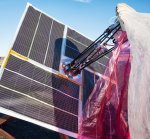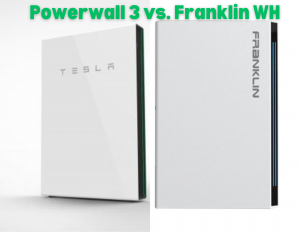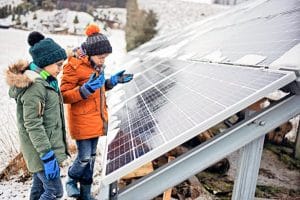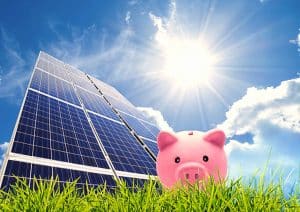Google hopes to bring Internet access to the two-thirds of the world’s population that does not have it with the assistance of solar power and balloons.
Project Loon is a network of balloons travelling at 20 km above the Earth’s surface; each decked out with transmission equipment able to provide connectivity to a ground area about 40 km in diameter with download speeds comparable to 3G.
Project Loon’s balloon envelopes are made from polyethylene plastic standing fifteen meters wide by twelve meters tall when fully inflated. A parachute attached to the top of the envelope allows for a controlled descent whenever a balloon needs to be taken out of service.
A small box hanging below the balloon contains the electronics and radio antennas; plus batteries to store energy so the balloons can operate during the night.
Solar panels with a total capacity of 100 watts sit between the balloon and the hardware. Between the wind and sun, Project Loon is able to power itself purely through renewable energy.
One of the major challenges Google faced was how to control the balloons’ path through the sky. One balloon would be challenging enough and there will be hundreds of these in the future. While not providing much in the way of further detail, the company says it has found a way to do that, using just wind and solar power – along with some complex algorithms and serious computing power.
The Project Loon pilot test began this month when thirty balloons were launched from New Zealand; beaming Internet to a group of 50 pilot testers. The technology will be refined based on the results before the next phase.
New Zealanders interested in registering to be a Project Loon pilot tester for future test launches can sign up here.
“The idea may sound a bit crazy,” says Google’s official blog, “and that’s part of the reason we’re calling it Project Loon – but there’s solid science behind it.”







































